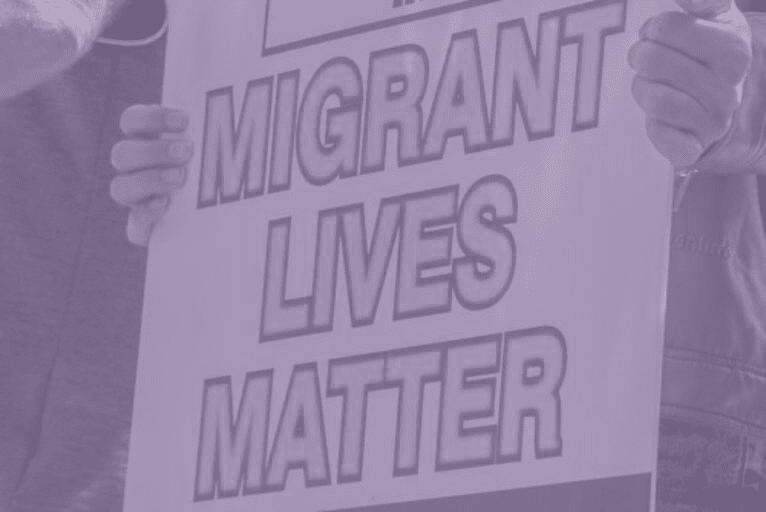By Aamy Roshan
After our tumultuous history with the Dawn Raids era, overstayer amnesty has remained a sensitive topic. The Dawn Raids are what Dr Anae calls “the most blatantly racist attack on Pacific peoples by the New Zealand government in New Zealand’s history.” 1 It was a period in the 1970s that saw Pacific overstayers as the target of deportation over illegal overstaying, as police were given the right to stop people and ask for proof of legal status. Police powers were extended by the government so far as to allow them to enter the homes of individuals, without the necessary warrants. In 2021, then prime minister Jacinda Ardern, formally apologised for that dark period in New Zealand history, stating, “the Dawn Raids period cast a shadow over our shared history. Upholding immigration laws is one thing, but the Dawn Raids went well beyond that.” Although an apology is a step in the right direction, many are urging government action to provide legal options for Pacific overstayers, as reports have surfaced pointing out that situations with undertones similar to the Dawn Raids are still occurring under the radar.

Currently, there are approximately 14,000 overstayers in New Zealand, all at risk of deportation, as no defined pathway exists for residency.2 In 2000, New Zealand implemented a one-off scheme that allowed well-settled overstayers, defined as those in the country for five or more continuous years or with strong family links within the country, to apply for residency.3 The need for such a scheme has now been brought back to life in the community, with a current petition accumulating approximately 11,119 signatures, urging the government to implement a new amnesty scheme for overstayers on compassion grounds.4 Such sentiments are shared by many groups, including Pacific communities and the Green Party,who have both been petitioning for an amnesty scheme to be put in place for years.
The calls for such a scheme have been escalated in the past few weeks, when a Pasifika overstayer was detained after a 5 am police raid on his property.5 This was not a one-off event. There have approximately been around 18 or 19 such reports of after-hours investigations, occurring between July 2022 and April 2023.6
There are many reasons to support such a program. Firstly, these overstayers are vulnerable and often afraid to seek medical services and financial aid, due to the possible legal repercussions.7 After the current cyclone floods, this has become especially troublesome as there are potentially hundreds of affected overstayers in the cyclone-impacted areas.8 However, they are not able to access the same aid as citizens, due to the risk of deportation that they face. Furthermore, sending the overstayers back to their origin countries could also put them in vulnerable situations. Take, for example, Tongan overstayers, whose homes had been destroyed by the volcanic eruptions.9 This community plays a significant role in our culture and society, and this would also provide stability for those with familial ties in New Zealand, such as those with New Zealand-born children.
One of the major arguments against such schemes is the extra burden that may be placed on our economy. However, it should be noted that these people are already in the country and would not result in a significant influx that would burden our economy. Furthermore, they play a significant role in the economy by working some of our most laborious jobs.10 Similarly to the Dawn Raids era, these migrants are vulnerable to exploitation and by providing legal status to these workers, we would be able to avoid the same mistakes by ensuring that these workers are given the right protections. Moreover, as Aotearoa Tongan Response Group deputy chair, Pakilau Manase Lua, put it: “They can’t qualify for benefits, so they are not taking from us, but they do pay tax every time they pay for petrol or buy a pack of cigarettes.”11
The reason this issue is so salient specifically to Pacific communities is because these individuals have been in the country for years, and many of them have New Zealand-born spouses and children. A community that has worked and contributed to our society so significantly should not have to live in fear of one day being forced to leave. As Green Party member, Ricardo Menéndez March, stated: “Migrants deserve to be treated with dignity and respect by our immigration system. But for many in our community, our immigration system has left them behind. They’ve fallen through the cracks, left vulnerable to exploitation, and denied the safety and security of a visa.”12 It is time for our country to finally acknowledge migrants’ rights to the same protection as New Zealand residents, which they have worked hard to earn, and to finally create a permanent pathway for those at risk.
References
[1] https://nzhistory.govt.nz/culture/dawn-raids
[2] https://our.actionstation.org.nz/petitions/amnesty-for-overstayers
[3] https://www.beehive.govt.nz/feature/october-2000-transitional-immigration-policy-45
[4] https://www.rnz.co.nz/international/pacific-news/483556/new-zealand-pm-to-look-into-pacifi c-overstayer-petition
[5] https://www.rnz.co.nz/news/national/489091/dawn-raid-tactics-still-happening-despite-government-apology
[6] https://www.nzherald.co.nz/nz/politics/greens-call-for-overstayer-amnesty-after-dawn-raid-repor ts-surface/MCJV77X2WVECXIMHSVT7LTMO5E/
[7] https://www.unitec.ac.nz/sites/default/files/public/documents/Tuvalu%20project%20report%20-FINAL 13.12.2021.pdf
[8] https://www.rnz.co.nz/news/national/484562/call-for-amnesty-so-overstayers-can-help-with-cyclone-clean-up
[9] https://www.nzherald.co.nz/talanoa/chris-hipkins-to-look-into-pacific-overstayer-petition/CDMDAPL7DRHRHEAGYZ3FOL62VU/
[10] https://www.rnz.co.nz/news/national/484562/call-for-amnesty-so-overstayers-can-help-with-cyclone-clean-up
[11] https://www.rnz.co.nz/news/national/484562/call-for-amnesty-so-overstayers-can-help-with-cyclone-clean-up
[12] https://www.greens.org.nz/the_time_is_now_for_overstayer_amnesty





One Response
Great delivery. Great arguments. Keep upp thhe great effort.